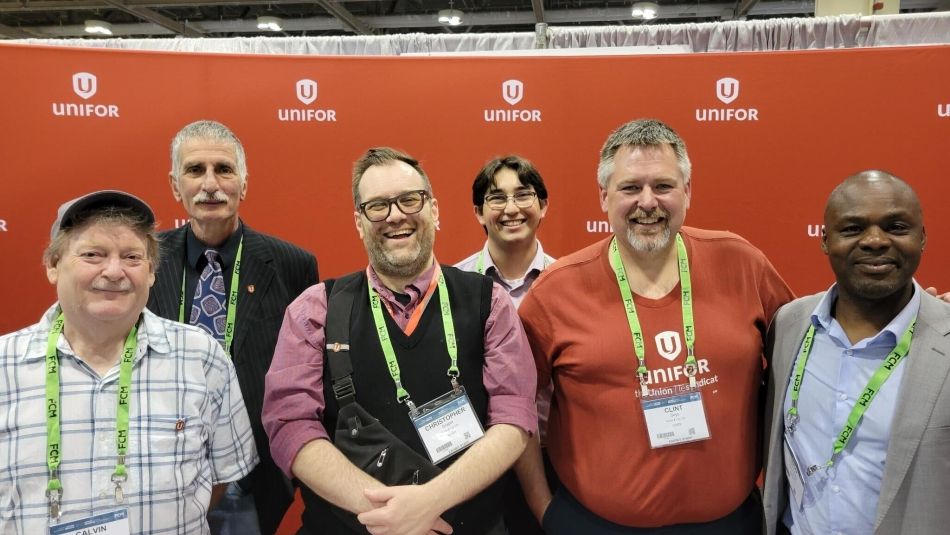
Share
Unifor put the future of transportation in the spotlight at this year’s Federation of Canadian Municipalities (FCM) Annual Conference, held May 25 to 28 at the Metro Toronto Convention Centre.
Union members connected with elected officials, local government representatives, decision makers and stakeholders to send the important messages of buying Canadian when it comes to public transportation vehicles – especially during the shift to electric vehicles (EV) – and investing in passenger rail service to improve service that connects towns and cities across the country.
“The choices made by municipal leaders now will affect Canadians for generations to come,” said Unifor National President Lana Payne.
“Unifor members are building and running the transportation sector today, and we’re here at FCM to talk, learn and listen to the needs of municipal leaders who have some big decisions to make.”
Members from three workplaces – New Flyer, Alstom, and VIA Rail – advocated for the future of transportation at the conference and showcased the important work Unifor members do producing vehicles in that sector.
Nelson Mahmoudi, Luco Louis-Charles, and Christopher Graper are passionate Unifor members representing VIA Rail. They actively engaged with delegates and discussed how municipalities can contribute to preserving Canada's passenger rail system from privatization.
Unifor encourages the public to take action to preserve and improve access for citizens in their community, by joining the union’s Back on Track campaign and signing the petition.
Dominic Pasqualino, President of Unifor Local 1075 and a city councillor in Thunder Bay, Ont., said members at his local manufacture TTC vehicles and multi-level trains and shared his insights about the need of investing in Canadian-made transportation vehicles, prioritizing supporting our local industries and strengthening Canada’s economy and creating sustainable jobs.
There are 2,000 Unifor members who build buses and light rail vehicles in five manufacturing facilities across the country – from Winnipeg, Man. and Thunder Bay to St. Claire and Ste. Eustache, Que.
“Unifor members can build the trains, transit cars, planes and automobiles of the future,” said Payne.
“Canadian cities and all levels of government must support made-in-Canada public transit, including electric buses and highspeed trains, to move Canadians to where they want to go, and create opportunities for local jobs and economic development across the country.”
Since Unifor’s founding in 2013, the union has sought to influence the decisions of municipal leaders throughout the country and continued that work at FCM.
“In every city and town across Canada, transportation is a front burner issue for municipal leadership,” said Payne.
“Our union has to be there to push municipal leaders in the right direction for Canadian workers and their families.”


